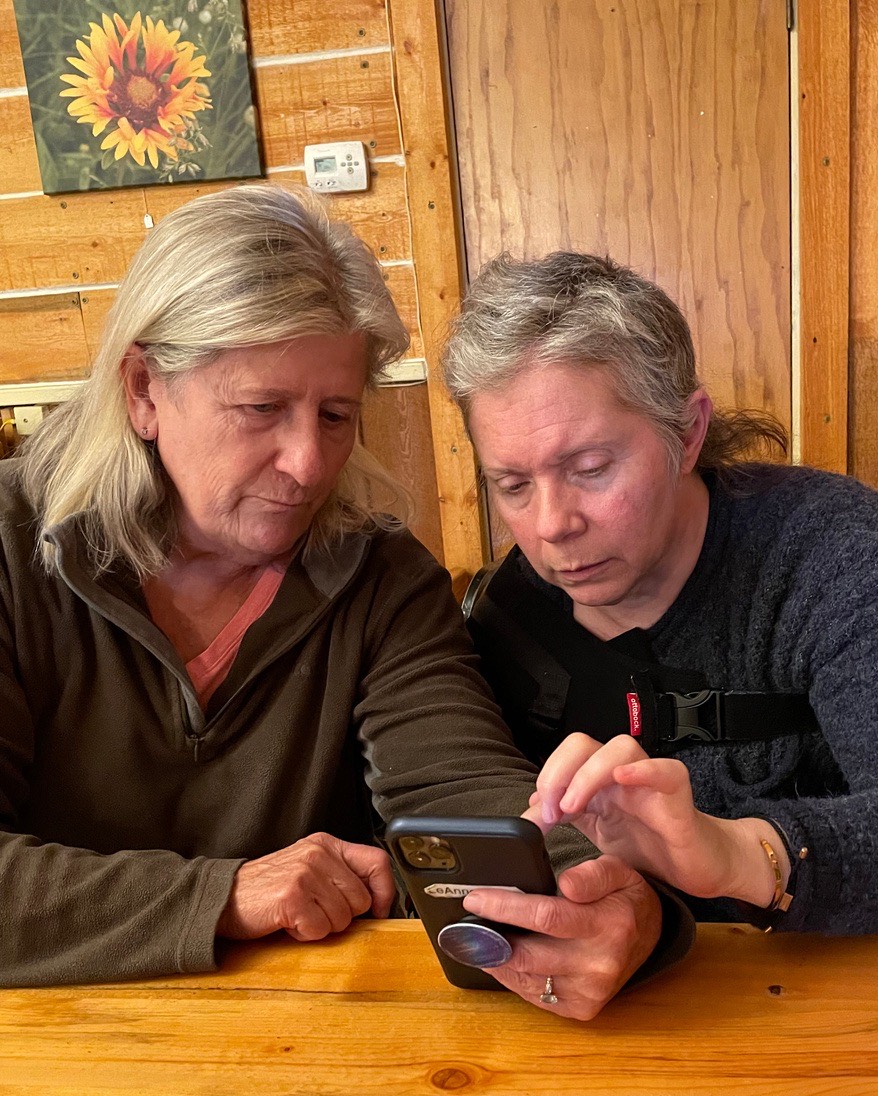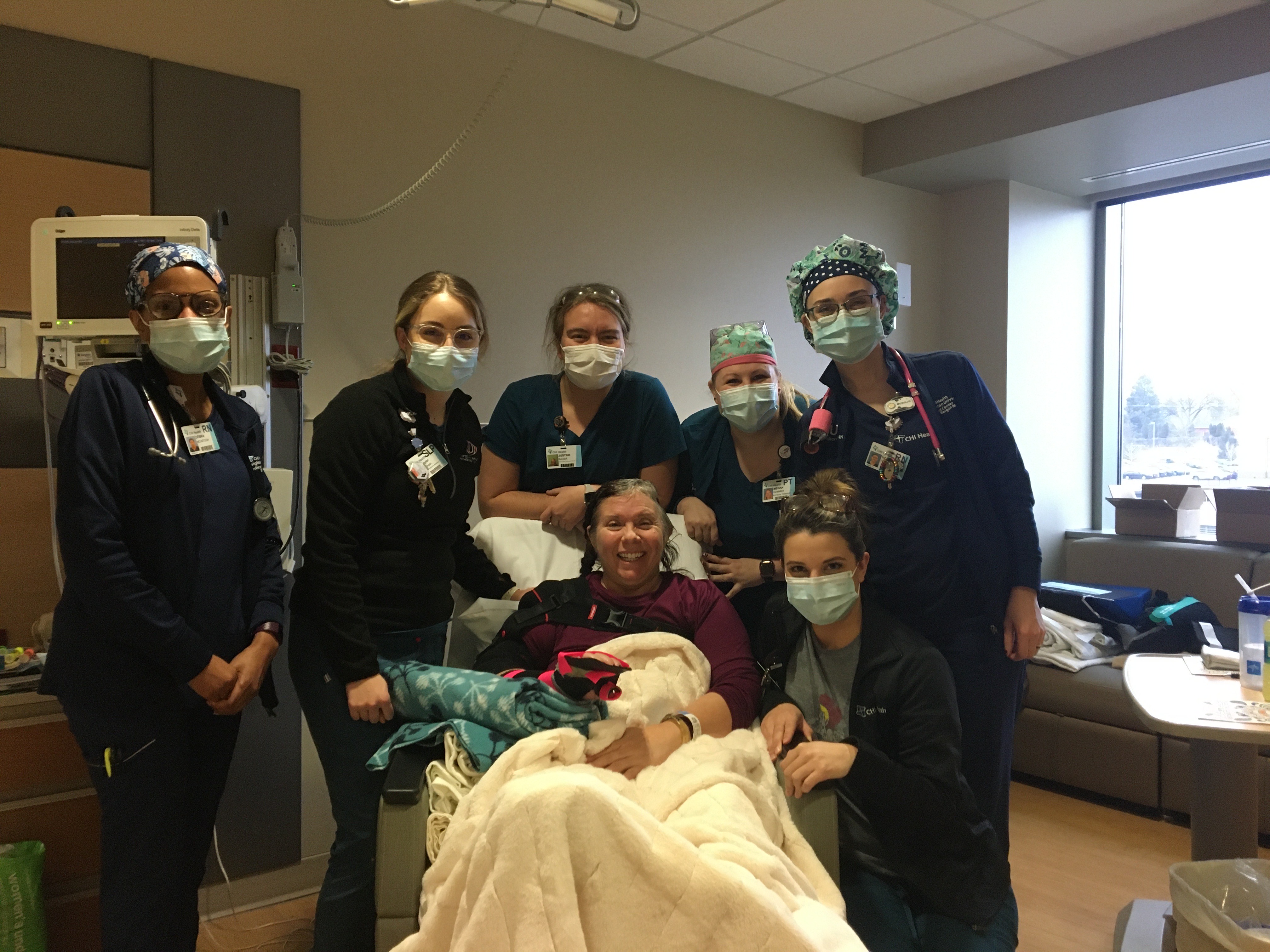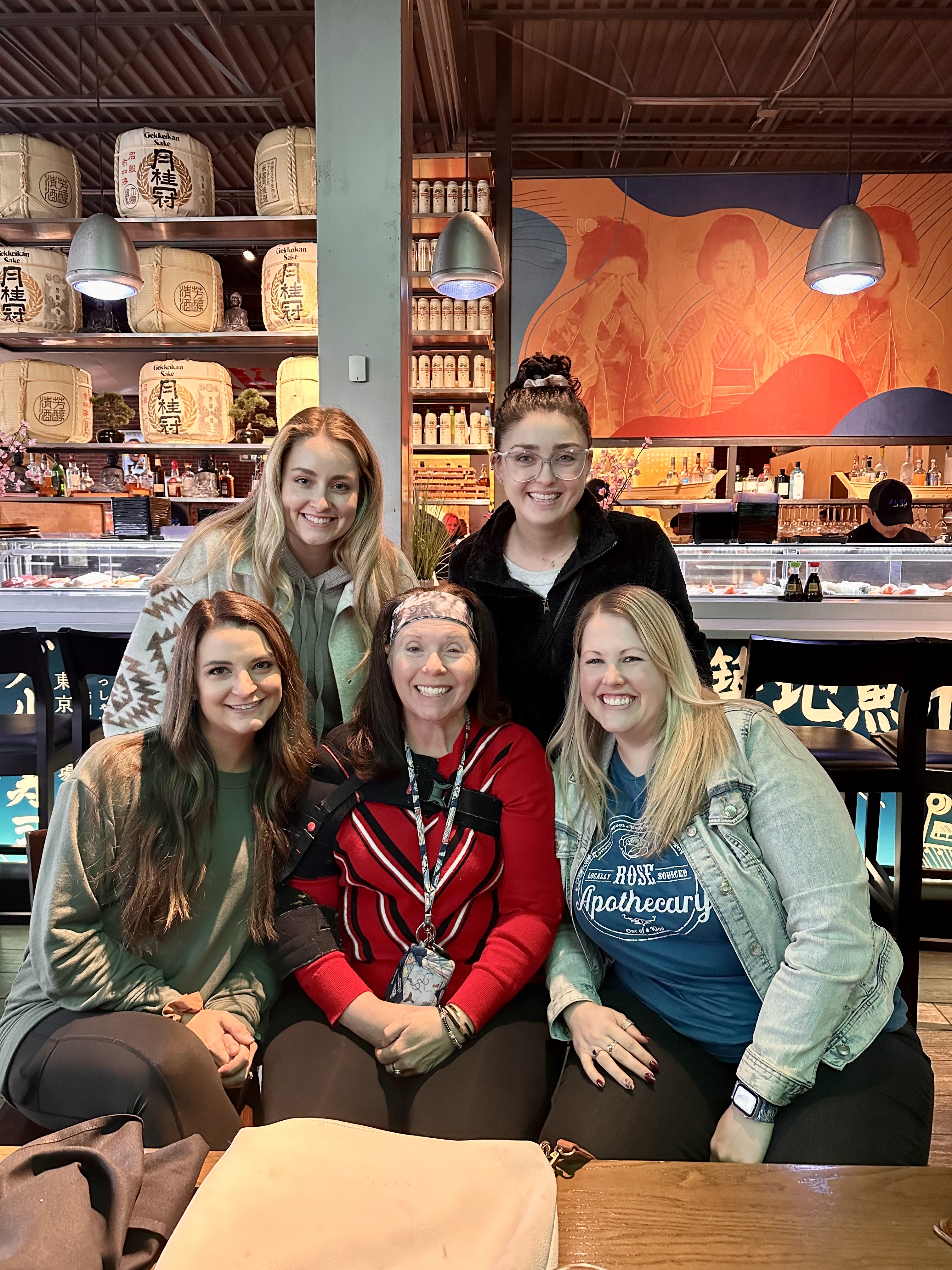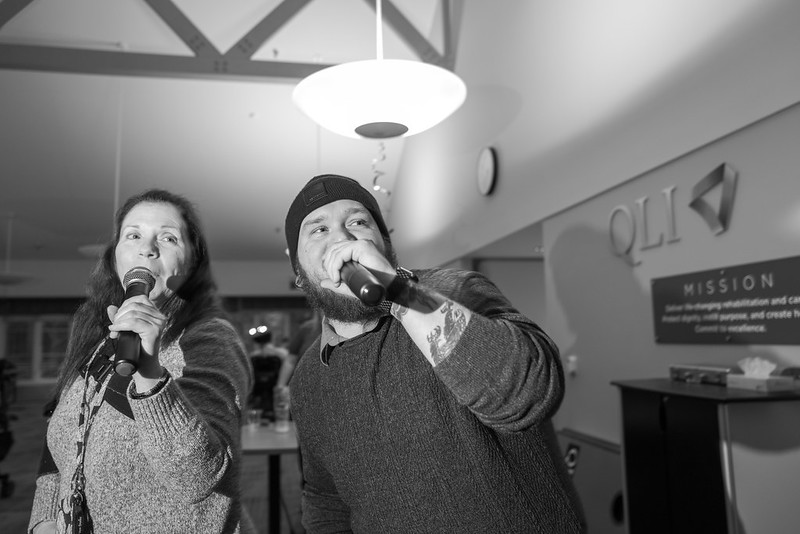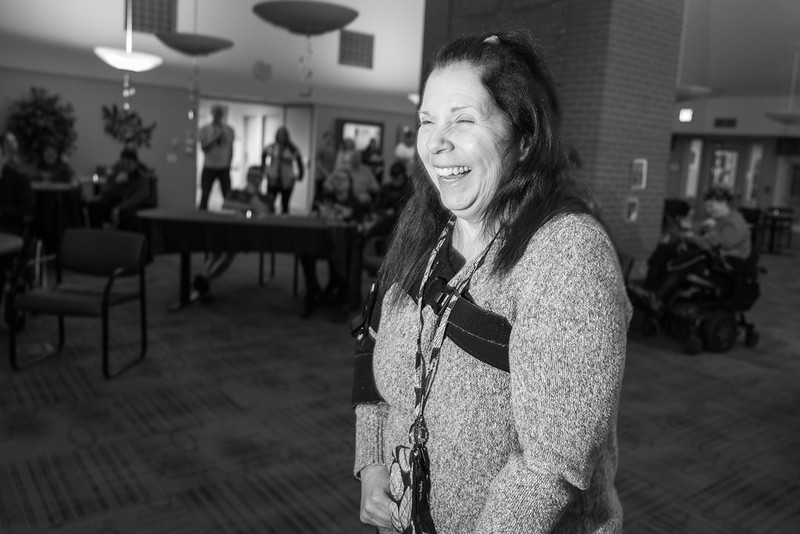It is April 2025. The iPad unlocks. With a darting hand, Andrea Fossum pulls up Facebook, and a few more taps get her to her friend Jennifer Cady’s page. She turns the iPad over. Andrea smiles, having an idea of what it might say, but she’s not able to read the words herself. In the post, Jennifer notes the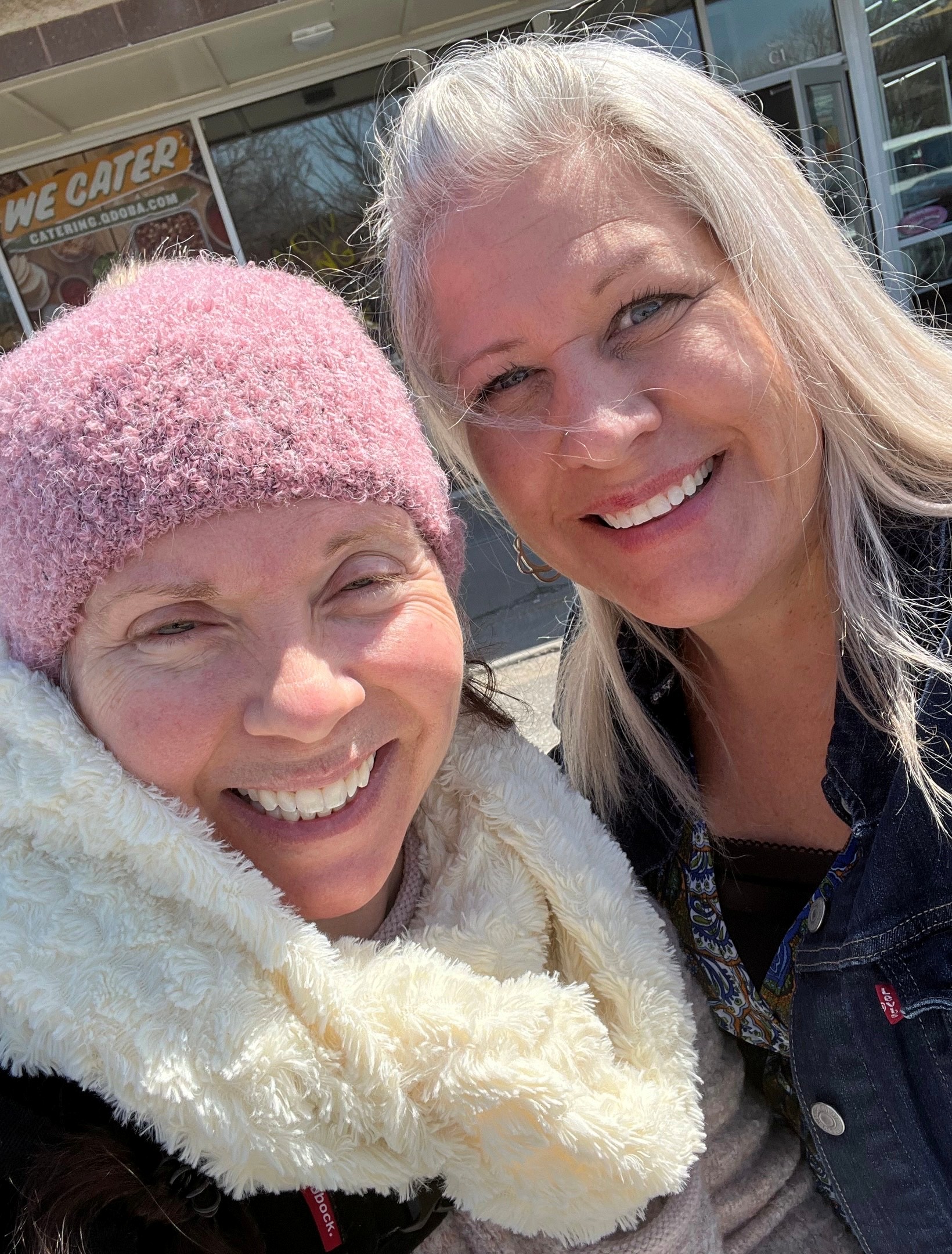
__
It is spring 2021. Andrea, having successfully defended her dissertation (“Collaborative professional learning and disciplinary literacy: An approach for systems coherence during pedagogical change”), prepares to receive her Doctorate of Education, Leadership, and Innovation from Arizona State University. It is time to embark on the next phase of her already storied and enriched career, as Dr. Fossum.
__
It is April 2021. Andrea has temporarily based herself out of an Omaha, Nebraska, hotel. She’s waiting for the arrival of two visas. With them in hand, she can head to Shenzhen, China, to begin work as the secondary school principal at Shekou International School. But the process has grown long, coupled with a world still emerging from the pandemic. She got one visa, but needed the other, only to have the first expire, and then have the process start all over again. On a Friday in September, Andrea suddenly feels weakened, both physically and cognitively. For three days, she tries to get aid, though barely moving and only able to say the word “help,” over and over again, in immense agony.
Before / After
Later on, Jennifer says, “Andrea takes over any room she walks into with a unique blend of confidence, intelligence, and wit. She lives unabashedly…her inner light shines no matter where she is or what she is doing.”
Things, Andrea will admit, have changed. At hand when meeting with people is a laminated booklet, ready with reference—a diagram of a hotel room, an alphabet chart, two lists of “before” and “after.” With the latter, Andrea points to the “before” side. “Before,” she starts, and points. One of the bullet points notes—a multitasker. “After,” pointing to the other side. One task at a time, it says. The other points 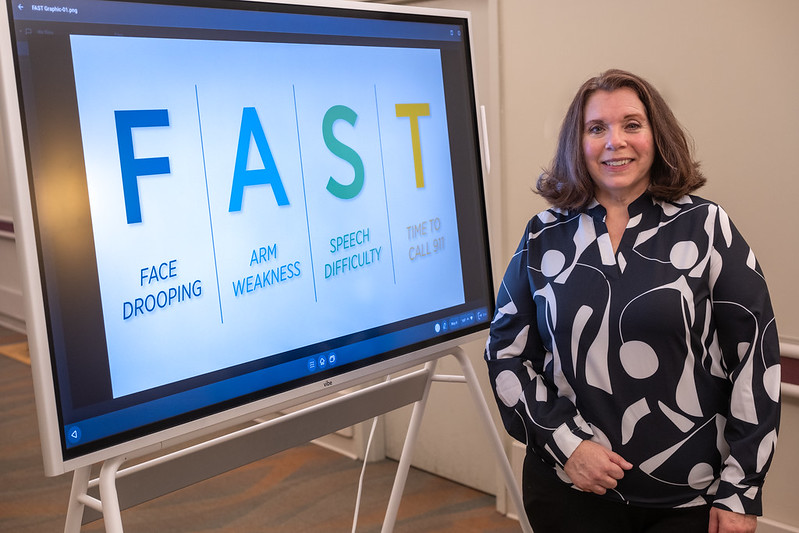
__
Andrea’s has been and will continue to be a life lived to the fullest, always set to explore and discover. One needs just get a tour of her space in QLI’s Assisted Living Lied Apartments—with dozens upon dozens of artifacts and objects (from dozens upon dozens of countries) all lined up in a specific order, to again know just a fraction of who she is.
They look like tantalizing chapters of a globetrotting epic, tracking Andrea from her roots growing up in Kansas and Grand Island through a bachelor’s degree from Creighton University, and three master’s degrees, leading into a career of international education. A passion for archaeology included participating in digs in Morocco, culminating in work for the Flager Museum in Palm Beach, Florida, where Andrea discovered a deep love for education. Then the story of her life broadens widely. Islamabad, Pakistan, to Monterrey, Mexico, to Amman, Jordan.
What prompted this international venture? “Danger,” Andrea admits with a laugh. It was an opportunity—and a whole host of unknowns along with it. Through her work in international schools, she rose to the level of assistant principal and then principal. How did she follow this up? By returning to school for her doctorate. Andrea’s always been driven by helping others, lifting students, inspiring and engaging them, trying to understand how educational institutions can be better, do better.
Journey to QLI
In 2025, Andrea takes a moment, going towards her booklet. She flips to the diagram of the hotel room, along which are a series of lines against the floor, with points denoting “Day 1, 2, and 3.” While waiting for her visas to China, Andrea suffered a stroke. She points to one side of the diagram. “Here,” she says, “‘help, help, help.” Andrea traces her finger towards the bathroom door. “‘Help, help, help,” she repeats. Three days passed while Andrea drifted in and out of consciousness, unsure of what was happening to her or if help would arrive. Her father called the hotel on the second day following the stroke, having not heard from her. Hotel staff assumed Andrea was napping, possibly because of a “Do Not Disturb” sign on the door. On the third day, he called again for a wellness check. The hotel’s deputy superintendent discovered her, calling authorities, and Andrea was transported to Lakeside Hospital in Omaha, later moved to Bergan Mercy Hospital due to insurance difficulties. From there was the long process towards recovery. When in the hospital, Andrea could only speak three phrases and had difficulty even standing up straight, let alone attempting to walk.
Andrea was diagnosed with aphasia, a speech-language disorder that can affect receptive or expressive elements of speech and is associated with strokes. The particular kind of aphasia Andrea has limits her expressive capabilities. She can understand words spoken to her but has difficulty with word-finding when replying. Further, her stroke has removed her ability to read text, instead requiring her to rely on text-to-speech apps and software. Though the process of getting to where she is today was not an easy one, it was because of the QLI team that Andrea has been able to maximize her post-stroke life. Again, Andrea’s vocabulary immediately post-stroke was severely limited. But over time, she worked with clinicians and collaborated to develop strategies and exercises. She is continually improving.
Her close friends and colleagues attest to the change they heard and witnessed. Jennifer remembers how Andrea’s work ethic aligned with her programming, in one part, through physical therapy. Andrea, she notes, was bound and determined to get up and walk. After a long day of therapy, she practiced walking part of a lap around QLI’s Colladay Center. Jennifer noticed the look of determination on Andrea’s face, to which Andrea simply said, “Two.” Cane in hand, Andrea walked two full laps around the Center, the first time she had done so. But importantly, through diligent work with the speech pathology team, her confidence and word-finding abilities increased. She began utilizing apps that provided exercises, displaying prompts of items, with the user’s goal being to provide the answer in pictorial or verbal form. In addition to elements of technology, apps, and programs, Andrea has also developed a way to fully communicate her point in a quasi-multi-modal sense, trying to first find a word. If the word doesn’t come, draw a symbol on a pad of paper. If the other person in the conversation ventures a guess as to what word she is looking for, but isn’t quite there, Andrea might say “yes but no,” or repeat, “this one,” leading the conversation closer to the word she is looking for.
What QLI provided for Andrea were the tools and then the ability to see what life, once more, might look like.
A Way to Thrive
Following her inpatient rehabilitation, Andrea moved to an assisted living facility in Montana to be closer to extended family. Though Andrea connected positively with some members of the staff, the facility was ultimately not the best fit for her, with sub-optimal living conditions and no great emphasis placed on furthering Andrea’s growth. What was progression at QLI started to turn into regression. It was frustrating for her, to say the least, and the conversations began once more: Where to next?
Our core needs extend beyond the usual food, water, and shelter. A roof over our heads is not enough when we aren’t allowed to be ourselves, to pursue our interests, and lead meaningful lives. Andrea needed a change, to live where her progress could continue and her character would be uplifted.
It was agreed in 2023 that Andrea could return to QLI, with a place in the Lied Assisted Living Apartments. What did this change for Andrea bring? For one, it was a community and home that could treat her not as a patient but as a person. In meeting and connecting with team members, Andrea could create a schedule that suited her tastes and desires, time built in, every day, to continue to work out and hone her physical progress.
Notes friend Margaret Reade Rounds, from Fiji, “Andrea is still very much the same person as she ever was—and her enthusiasm for life has much to offer those around her.” Continuing still, with team member support, to daily utilize apps to increase her word finding abilities and even to connect with institutions in the community, such as the University of Nebraska Omaha, where Andrea goes weekly to work with speech-language specialists. Since December 2024, Andrea has met weekly with Claire, a UNO student who volunteers at QLI. Together, the two have started to transfer schedules into an accessible form, creating the physical booklet for communication and a workout plan. For Claire, Andrea has displayed “consistent resilience as she works through learning curves.”
An oft-repeated phrase of Andrea’s in times of struggle is, simply, “aphasia sucks.” But through it all, she notes, is “patience and faith.” There to guide her, to give her peace of mind.
“But despite the complexities and difficulties that have come up,” says Claire, “she’s found ways to adapt and continue, found things that make life special.”
In response to this, Andrea smiles. “So precious is the time,” she says. “Every last bit counts.”
At the heart, though, Andrea is back in a community, and it is in such an environment that the connective components of her personality can thrive. “Being back at QLI allows Andrea the autonomy to live how she desires, while balancing the supports and therapies she needs,” says friend Jennifer. “Andrea was always meant to thrive. That word has taken on a new meaning post stroke, but QLI has been the place for her where thriving has been possible.”
Categories: Aphasia, Client Story, Skill Acquisition, Speech and Life Skills, Stroke

